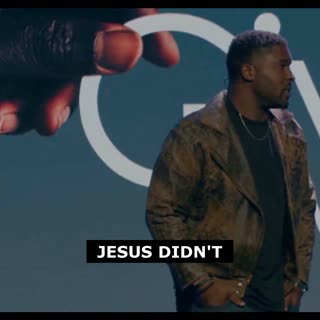Embracing Generosity: A Call to Abundant Living
Summary
In today's gathering, we explored the profound call to generosity as followers of Jesus, drawing from Paul's letter to the Corinthians. Our journey began with a reflection on Paul's missionary work, particularly his time in Corinth, where he faced resistance from the Jewish community but found fertile ground for the gospel among the Gentiles. This historical backdrop set the stage for understanding the transformative power of the gospel, which unites diverse groups in love and service.
Paul's letter to the Corinthians challenges us to view our handling of resources—time, finances, and talents—as a reflection of our spiritual maturity. Generosity is not merely an act of giving but a testament to our faith and commitment to Jesus. Paul emphasizes that our willingness to give is a litmus test of our genuine discipleship. He doesn't beg for contributions but reminds the Corinthians of their identity in Christ, encouraging them to give cheerfully and abundantly.
We delved into the concept of "God math," which defies conventional logic by asserting that the more we give, the more we receive. This principle challenges us to trust in God's abundant provision, even when it seems counterintuitive. Our generosity should stem from a deep understanding of God's character as the ultimate giver, who blesses us abundantly so that we can bless others.
The sermon also addressed the internal struggle we face when prompted by the Holy Spirit to act. Often, we resist these promptings due to fear or reluctance, leading to feelings of guilt and disconnection from God and others. However, by choosing to act with our hands, even when our hearts are hesitant, we align ourselves with God's will, allowing our emotions to catch up with our actions.
Finally, we celebrated the abundant love of God through communion, remembering Jesus' sacrifice and the call to follow Him wholeheartedly. This act of remembrance serves as a powerful reminder of the gospel's transformative power and our call to live generously, reflecting God's love to the world.
Key Takeaways:
1. Generosity as a Spiritual Indicator: Our approach to giving—whether of time, resources, or finances—reveals the depth of our spiritual formation and commitment to Jesus. Generosity is a tangible expression of our faith and a testament to our discipleship. [37:34]
2. Trusting in God's Abundance: The concept of "God math" challenges us to trust in God's provision, believing that the more we give, the more we will receive. This principle encourages us to live with open hands, confident in God's abundant blessings. [44:21]
3. Responding to the Holy Spirit's Prompting: Ignoring the Holy Spirit's promptings leads to guilt and disconnection. By choosing to act, even when reluctant, we align ourselves with God's will, allowing our hearts and minds to catch up with our actions. [46:38]
4. God as the Ultimate Giver: God is the giver on both sides of our generosity. He provides the resources for us to give and blesses us abundantly in return. Recognizing God as the ultimate giver transforms our perspective on generosity. [52:31]
5. Following Jesus Beyond Belief: Believing in Jesus is not enough; we are called to follow Him in every aspect of our lives. This involves dying to our desires and living in obedience to His call, reflecting His generosity and love to the world. [56:00]
Youtube Chapters:
- [00:00] - Welcome
- [00:45] - Introduction to the Series
- [02:10] - Paul's Missionary Journey
- [05:30] - The Church in Corinth
- [08:15] - Paul's Letter and Call to Generosity
- [12:00] - Generosity as Spiritual Formation
- [15:45] - The Concept of "God Math"
- [20:30] - Responding to the Holy Spirit
- [25:00] - God as the Abundant Giver
- [30:15] - The Call to Follow Jesus
- [35:00] - Communion and Reflection
- [40:00] - Closing Prayer and Benediction
Study Guide
Bible Study Discussion Guide
Bible Reading:
- 2 Corinthians 9:6-11
- Acts 18:1-11
Observation Questions:
1. What was Paul's strategy when he first arrived in Corinth, and how did the Jewish community respond to his message? [37:34]
2. How does Paul describe the relationship between sowing and reaping in 2 Corinthians 9:6? What does this imply about generosity? [44:21]
3. According to the sermon, what is the significance of the "God math" concept, and how does it challenge conventional thinking about giving? [49:38]
4. How does Paul encourage the Corinthians to give, and what attitude does he emphasize in their giving? [44:21]
Interpretation Questions:
1. Why does Paul consider generosity a litmus test for genuine discipleship, and how does this relate to spiritual maturity? [37:34]
2. How does the concept of "God math" reflect a deeper trust in God's provision, and what might this look like in a believer's life? [49:38]
3. What are the potential consequences of ignoring the Holy Spirit's promptings, and how can acting despite reluctance align us with God's will? [46:38]
4. How does recognizing God as the ultimate giver transform our perspective on generosity and our relationship with resources? [52:31]
Application Questions:
1. Reflect on your current approach to giving. How does it reflect your spiritual maturity and commitment to Jesus? What changes might you consider making? [37:34]
2. Have you ever experienced "God math" in your life, where giving led to unexpected blessings? How did this impact your faith and trust in God? [49:38]
3. Think of a recent time when you felt prompted by the Holy Spirit to act but hesitated. What steps can you take to be more responsive to these promptings in the future? [46:38]
4. In what ways can you cultivate a cheerful attitude towards giving, and how can this attitude influence your interactions with others? [44:21]
5. How can you actively recognize and celebrate God's abundant provision in your life, and how might this recognition inspire greater generosity towards others? [52:31]
6. Consider the call to follow Jesus beyond mere belief. What specific areas of your life might require a deeper commitment to living out His teachings? [56:00]
7. How can the act of communion serve as a reminder of the gospel's transformative power and inspire you to live generously in your daily life? [57:57]
Devotional
I'm ready to provide the 5-day devotional based on the steps outlined. Here it is:
---
Day 1: Generosity Reflects Spiritual Maturity
Generosity is a profound indicator of one's spiritual maturity and commitment to Jesus. It is not merely about the act of giving but about the heart and intention behind it. When we give of our time, resources, or finances, we are expressing our faith and discipleship. This act of generosity is a tangible reflection of our spiritual formation, showing how deeply we are rooted in Christ. Paul, in his letter to the Corinthians, emphasizes that our willingness to give cheerfully and abundantly is a testament to our identity in Christ. He challenges us to see generosity as a spiritual discipline that reveals the depth of our relationship with God. [37:34]
"Each one must give as he has decided in his heart, not reluctantly or under compulsion, for God loves a cheerful giver." (2 Corinthians 9:7, ESV)
Reflection: Consider your current approach to giving. How does it reflect your spiritual maturity and commitment to Jesus? What changes can you make to align your generosity with your faith?
Day 2: Trust in God's Abundant Provision
The concept of "God math" challenges conventional logic by asserting that the more we give, the more we receive. This principle invites us to trust in God's abundant provision, even when it seems counterintuitive. It encourages us to live with open hands, confident in God's blessings. By embracing this mindset, we acknowledge that God is the ultimate provider, and our generosity is a response to His faithfulness. Trusting in God's abundance allows us to give freely, knowing that He will meet our needs and bless us in return. [44:21]
"And God is able to make all grace abound to you, so that having all sufficiency in all things at all times, you may abound in every good work." (2 Corinthians 9:8, ESV)
Reflection: In what areas of your life do you struggle to trust in God's provision? How can you practice "God math" by giving generously and trusting in His abundance today?
Day 3: Responding to the Holy Spirit's Prompting
Ignoring the promptings of the Holy Spirit can lead to feelings of guilt and disconnection from God and others. Often, we resist these promptings due to fear or reluctance. However, by choosing to act with our hands, even when our hearts are hesitant, we align ourselves with God's will. This alignment allows our emotions to catch up with our actions, fostering a deeper connection with God. Responding to the Holy Spirit's prompting is an act of obedience that strengthens our faith and draws us closer to God's heart. [46:38]
"And I will give you a new heart, and a new spirit I will put within you. And I will remove the heart of stone from your flesh and give you a heart of flesh." (Ezekiel 36:26, ESV)
Reflection: Think of a recent prompting from the Holy Spirit that you resisted. What steps can you take today to act on that prompting and align yourself with God's will?
Day 4: Recognizing God as the Ultimate Giver
God is the giver on both sides of our generosity. He provides the resources for us to give and blesses us abundantly in return. Recognizing God as the ultimate giver transforms our perspective on generosity. It shifts our focus from what we are giving up to what we are gaining in our relationship with God. This understanding encourages us to be generous, knowing that God is the source of all blessings and that He delights in our willingness to share His gifts with others. [52:31]
"Every good gift and every perfect gift is from above, coming down from the Father of lights, with whom there is no variation or shadow due to change." (James 1:17, ESV)
Reflection: How does recognizing God as the ultimate giver change your perspective on generosity? What specific ways can you reflect His generosity in your life today?
Day 5: Following Jesus Beyond Belief
Believing in Jesus is not enough; we are called to follow Him in every aspect of our lives. This involves dying to our desires and living in obedience to His call. Following Jesus means reflecting His generosity and love to the world, going beyond mere belief to active discipleship. It is a call to live out our faith in tangible ways, demonstrating the transformative power of the gospel in our lives. By following Jesus wholeheartedly, we become conduits of His love and grace to those around us. [56:00]
"And he said to all, 'If anyone would come after me, let him deny himself and take up his cross daily and follow me.'" (Luke 9:23, ESV)
Reflection: In what areas of your life are you merely believing in Jesus rather than actively following Him? What steps can you take to live out your faith more fully and reflect His love to the world?
---
Quotes
"I wanna welcome you to TC3 this morning. My name is Myles. I get to be our pastor here. We're so thankful. If you are watching online, make sure that you write in the chat where you're watching from. We're so thankful that you're here as well. Man, can we give God praise for our tech and production team for putting stuff like that together so we can relive those moments? It's pretty awesome that we get to do that. And we are overwhelmed by God's grace and what he's done in and through this place throughout this year. We are so thankful that we get to continually be a part of what God is." [00:35:39] (33 seconds)
"And what Paul is trying to communicate in this chapter of 2 Corinthians that we're going to read today, and what he's trying to communicate to us is how we handle our resources, how we handle our time, how we handle our finances, how we handle our giving is an indication of our spiritual formation." [00:39:01] (20 seconds)
"How we handle our resources is a litmus test to whether or not we are genuinely and truly following Jesus is what Paul communicates. And it's the last thing that I want to communicate to us as we end out this series, how we spend and how we give and whether or not we are generous with our time. And I want to communicate to you that we are generous with our time and with our finances is a litmus test for whether or not we are genuinely serious about following the Messiah, Jesus." [00:39:21] (30 seconds)
"God math simply says, the more that you give, the more you'll be able to give. It doesn't make sense. It's like, what? The more I give, the more I'll be able to give. What do you mean? If I give more, I'll have less in my pocket. How am I going to be able to give more, Miles?" [00:44:07] (14 seconds)
"We try to complicate it. We get a prompting from Jesus, from the presence of Jesus called the Holy Spirit of God that lives in us. We get a prompting from him. And then what happens is we often betray ourselves as we ignore the promptings of Jesus to act, to surrender, or to serve. We ignore those things. And when we betray ourselves, we're left with feelings of guilt. We're left with feelings of condemnation or worse. We begin to look for ways and reasons to justify why we betrayed ourselves and the prompting of the Holy Spirit of God that lives within us." [00:44:54] (37 seconds)
"And when we do this, the Holy Spirit of God begins to transform our hearts and shapes us up. It's more into the image of Jesus and we begin to understand God better and we are more willing to give and not just give, but we are cheerful givers because we have a better understanding of the one that we are giving to." [00:48:39] (21 seconds)
"Paul says very clearly here that God wants to be known as the abundant giver, as the abundant God. Abundance is a characteristic of God. Just look at creation. Just think about how carpeted the woods are. Just think about the depths of the sea. Look at the abundance of the world. Look at your own life." [00:49:15] (23 seconds)
"And what he wants us to see here is that God is the one that gives seed for the scattering and he is the one who will bring harvest for the righteousness. And so what's the point? The point is simply that God is the giver, not the taker on both sides of our giving. On both sides of our giving, God is the giver." [00:52:44] (20 seconds)
"God is the abundant, the abundant giver, the abundant lover of our souls, the one that made us in his image. And then we rebelled against his kingdom, against the kingdom of heaven. And then our accuser, Satan, decided to take us to court. And we stand in court and God is the righteous, holy, and perfect judge. And we stand there guilty. And we stand there guilty. And we stand there guilty. And we stand there guilty." [00:54:30] (26 seconds)
"Jesus didn't say like, hey, come, just believe, just believe that I am the son of the living God. Just believe that I'll die on the cross and that I rose from the dead. The Bible says that even the demons believe and they tremble." [00:56:08] (15 seconds)
"My Holy Spirit will now live through you, but I'm asking you to die to your flesh. I'm asking you to die to everything in which you ever desire, to the relationship that you desire that doesn't honor me, to the finances that you hoard. I'm asking you to die to that. I'm asking you to die to your political ideologies. I'm asking you to die to any idea that stands against the text. Scripture that I wrote as a love letter to you. I'm asking you to die to anything that does not look like my son, Jesus." [00:56:46] (32 seconds)






















